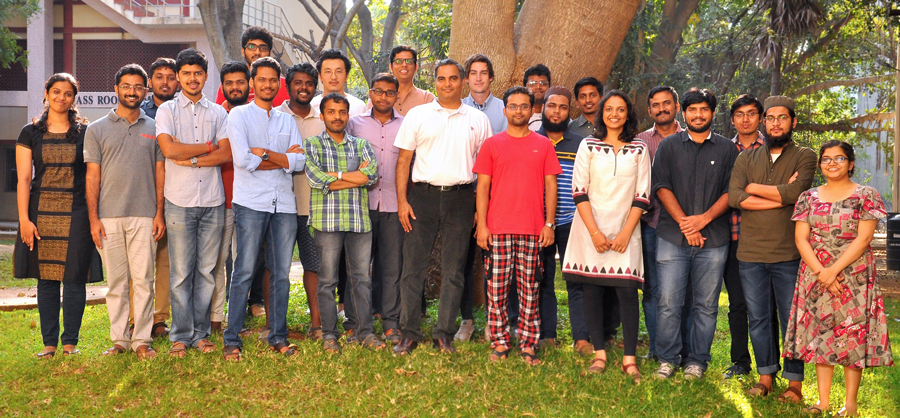Sam Pearn-Rowe, a graduate of Chemical Engineering, Curtin University, knew little about India before visiting for the first time in 2016 to undertake a six-month New Colombo Plan (NCP) Student Mobility Program. Three years on, he is a frequent visitor, taking advantage of the second largest start-up ecosystem in the world.
Importance of informed international office advisers
“Like many Australian engineering students, I had never heard of the NCP nor the Indian Institute of Technology (IIT) Madras. Most of my cohort considered USA, Germany or Japan as world leaders in the engineering space.”
Had it not been for Curtin University's international officer Trish Ransfield and her knowledge of the New Colombo Plan, Sam might never have considered opportunities in India.
“Trish introduced me to IIT Madras as India's top engineering university with strong links to industry and its own start-up ecosystem.”
Holistic learning and building networks
The NCP experience is about being immersed in another culture, language and work environment. It also provides exposure to new ideas, diverse work practices and access to world-leading industry experts.
“At IIT Madras, I was able to work with entrepreneurs, academics, PhD scholars and undergrads from a range of different disciplines. The Institute has a strong extracurricular learning culture, which included presentations by former alumni who worked for some of the biggest companies in the world. One memorable seminar was presented by a NASA Chief Scientist on how partnerships with global engineering institutions was leading to scientific breakthroughs in space technology.”
Exposure to emerging technologies
Sam's placement was in the energy systems laboratory with Chemical Engineering Professor, Raghunathan Rengaswamy. “Under incredible mentorship from Professor Rengaswamy I was exposed to cutting edge electrochemical projects, such as flow batteries, microbial solar cells, micro-fluidics and fuel cells.” He said that “access to this type of experimental technology would not have been possible at the undergraduate level in most Australian universities”.
Sam began to theorise, plan, test, and research PEM Fuel Cells, focusing on whether a new tubular configuration could result in efficiency gains. These cells are energy storage devices that work by using hydrogen fuel and oxygen from the air to produce electricity, leaving water as the only waste product.
“My research empirically proved that a streamlined design could provide a renewable alternative to fossil fuels and a higher performing competitor to batteries”. This would be ideal for small scale transportation such as drones or autonomous vehicles.
Having satisfied his project requirements, Sam returned to Australia to graduate, but stayed in touch with Professor Rengaswamy and another IIT Madras colleague, Suseendiran Ravichandran, contributing to joint research papers.
Leveraging networks and start-up ecosystem to commercialise new technology
In October 2017, Sam was invited to Washington DC to present his work at the 232nd Electrochemical Society Symposium.
“I was overwhelmed by the level of interest in our work, and decided to return to IIT Madras as a project associate to continue my research with Suseendiran and the team. It was there that I discovered substantial resources available for mentorship, funding and business development”.
By December 2018, Sam had co-founded Elicius Energy – an energy storage firm specialising in an open cathode PEM fuel cell prototype that offered a superior weight, volume and cost ratio, unmatched in the market.
Having successfully joined the incubation program, Elicius Energy applied for, and won, the pan-India Carbon Zero Challenge in May 2019. “I was stoked. It was an honour to be selected as the winner amongst some very innovative and promising projects from all over India.”
“I consider myself incredibly lucky to have had the opportunity to be an NCP mobility student. Not only did it open up my eyes to a new way of learning, it provided me the tools to create my dream job.”

